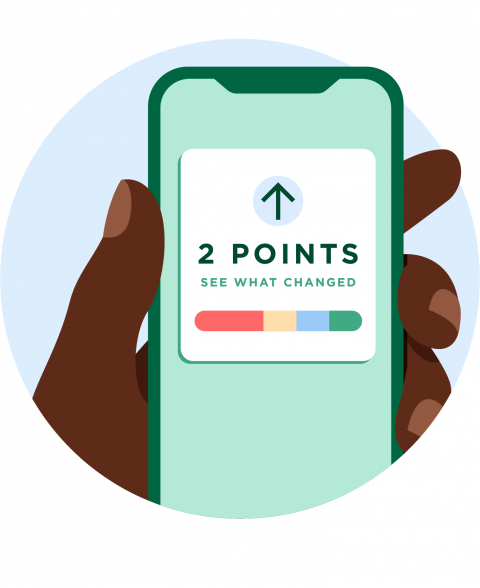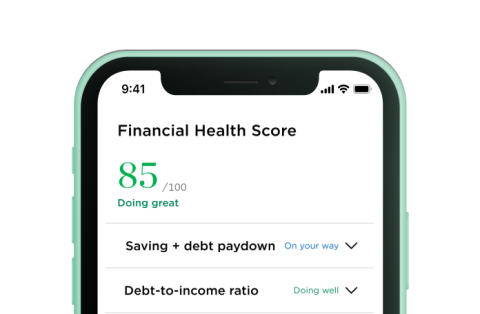How to Freeze Your Credit

Many or all of the products featured here are from our partners who compensate us. This influences which products we write about and where and how the product appears on a page. However, this does not influence our evaluations. Our opinions are our own. Here is a list of our partners and here's how we make money.
To freeze your credit, you have to contact each of the three credit bureaus — TransUnion, Equifax and Experian — individually.
Placing a credit freeze is free for you and your children, as is lifting it when applying for new credit.
A credit freeze lasts as long as you want it to. You could remove the freeze temporarily ahead of a big purchase, like a home or car.
A freeze does not affect your credit score.
A credit freeze, or security freeze, keeps the sensitive data in your credit files from being accessed without your consent. A credit freeze is one major way to help prevent identity theft and fraud, even if a criminal has key information such as your birthdate and Social Security number. Freezing your credit is free and won't harm your credit.
What is a credit freeze?
A credit freeze blocks access to your credit reports, protecting against scammers' attempts to access your credit reports and open fraudulent accounts. When someone applies for credit using your personal information, a lender or card issuer typically checks your credit before making a decision.
If your credit is frozen, the potential creditor cannot see the data required to approve the application.

How to freeze your credit with all 3 bureaus
Contact each of the three major credit bureaus — Equifax, Experian and TransUnion — individually to freeze your credit:
Equifax: Call 800-349-9960 or go online. Check out our step-by-step Equifax credit freeze guide.
Experian: Go online to initiate, or for information call 888‑397‑3742. Here’s a detailed walk-through on getting an Experian credit freeze.
TransUnion: Call 888-909-8872 or go online. Read our TransUnion credit freeze guide.
The quickest way to freeze your credit is online through your profile with each major credit bureau — and the bureaus highlight this method on their websites. But placing a freeze over the phone is also fast. Bureaus must place the freeze within one business day if you request it online or by phone, according to the Consumer Financial Protection Bureau; they have three business days to complete a mailed request.
Information you need to freeze your credit
It’s a good idea to gather all the documents you will need before initiating a credit freeze. While all three credit bureaus have slightly different requirements, here is the information you will generally need to provide:
Social Security number.
Date of birth.
Address.
Depending on how you initiate the credit freeze — online, by phone or by mail — you might also need the following:
Copy of your passport, driver’s license or military ID.
Copy of tax documents, bank statements or utility bills.
Proof of address, like a utility bill.
Note that if you freeze your credit by phone, be prepared to answer some authentication questions, too.
Once a credit freeze is in place, it secures your credit file until you lift the freeze. You can unfreeze (or "thaw") credit temporarily when you want to apply for new credit.
How to unfreeze your credit
Go to the credit bureau website and use the account you used to freeze your credit to unfreeze your credit. You may also be able to unfreeze your credit by phone or mail if you can provide certain verifying information.
If time is of the essence, the fastest way to unfreeze your credit is online or by phone. That request must be granted in one hour by the bureau(s). Unfreezing your credit by mail takes three business days from when the bureau receives your request.
Reasons for unfreezing your credit
While it's a good idea to keep your credit frozen all the time, there are some circumstances where you might need to thaw your credit temporarily. Primarily, you'll need to unfreeze your credit if you're applying for a new line of credit. Whether you're in the market for a new car, mortgage, rental apartment or cell phone, your credit will be pulled by the lender to assess your ability to pay.
You might also need to unfreeze your credit if you plan to use a "buy now, pay later" service while online shopping. For example, Affirm — one of the most popular BNPL platforms — instructs applicants to temporarily lift credit freezes at all bureaus where they've placed them.
Tips for unfreezing your credit
For a single application for credit, unfreeze only with relevant bureaus: You can ask the creditor which credit bureau it will use to check your credit and unfreeze only at that one.
When shopping around for credit, lift freezes at all three bureaus: If you're applying with several lenders in a short period, it may make sense to lift the freeze at all three major credit bureaus.
Set a time limit for peace of mind: You can choose to unfreeze your credit for a specified time period, after which the freeze automatically resumes. While this option takes some of the pressure off you on remembering to restart your freeze, it's important to give lenders the time they need to check your credit. For example, applying for a mortgage will require a longer time period than a car loan.
How to freeze your child’s credit
Parents and guardians can freeze the credit of a child under 16.
If you request a freeze for your child, the credit bureau must create a credit file for the child (assuming they don't already have one), then freeze it. In addition to supplying the information required for an adult credit freeze, you’ll also need paperwork to verify the child's identity and proof that you have standing to freeze the child’s credit.
You can also freeze the credit of a spouse or incapacitated adult at all three bureaus. You’ll need to provide the required documentation (copies of birth certificates, court orders and copies of Social Security cards, for example) and mail them to Experian, Equifax and TransUnion. You can find details online about this, as well as any downloadable freeze request forms, on each bureau’s security freeze page.
When should you freeze your credit?
If you’re not actively shopping for a credit card or loan, freezing your credit is wise. Freezing and thawing your credit are free, and NerdWallet recommends that all consumers protect themselves in this way.
If you think your data may have been compromised, for instance in a data breach, get a credit freeze. It’s especially key if your Social Security number may have been disclosed.

Cons of a credit freeze
There are a few, potentially:
A freeze can give you a false sense of security; you may still be susceptible to fraudulent charges on an existing credit account if it’s been compromised, or health care or tax refund scams involving your Social Security number. It’s still important to check monthly statements carefully for signs of fraudulent activity.
It can complicate creating a mySocialSecurity account (to track earnings, estimate future benefits, etc.). The easiest workaround is to thaw your credit for a day so you can create your account online. If you want to keep your freeze in place, you'll have to contact your local Social Security office.
Your insurance rate could increase if your state allows the use of credit information to set rates. In some cases, insurers can't access your frozen file and might not give you a discount a good score entitles you to. If that happens, you can call your agent to find out if you need to unfreeze your credit.
It can be somewhat inconvenient, because you need to remember to lift the freeze when you want to apply for credit. That inconvenience pales in comparison to having to unwind fraud or identity theft, though.
You may forget whether your credit is frozen. (If that happens, there are simple ways to find out if your credit is frozen.)

Credit freeze or credit lock?
Both a credit freeze and a credit lock block access to your credit reports, but there are some major differences. Credit freeze services are mandated by federal law and are free, whereas a credit lock is a product offered voluntarily by a credit bureau, which may charge a fee. Equifax’s credit lock is free; TransUnion offers a free lock through its TrueIdentity product or as part of a broader paid subscription; Experian’s CreditLock is available only as part of a paid subscription package.
Credit locks may offer convenience, such as being opened and closed with a finger swipe on an app, but they offer fewer legal protections than a freeze.
Who can access your frozen credit reports?
A credit freeze makes your credit reports inaccessible to most people, with a few exceptions:
You can access your own records, including getting your free weekly credit reports. You can also check your free credit report summary and score from NerdWallet while your credit reports are frozen.
Your current creditors still have access, as do debt collectors.
Marketers can see your credit reports for the purpose of sending you offers.
In certain circumstances, government or child support agencies can see them.
You can still permit an employer or potential employer to check your credit (though the version they see omits certain details).
You can request your credit report in Spanish directly from each of the three major credit bureaus: · TransUnion: Call 800-916-8800. · Equifax: Visit the link or call 888-378-4329. · Experian: Click on the link or call 888-397-3742.
🤓 Consejo Nerdy Usted puede solicitar una copia de su informe crediticio (gratis y en español) de cada una de las tres principales agencias de crédito: · TransUnion: Llame al 800-916-8800. · Equifax: Visite el enlace o llame al 888-378-4329. · Experian: Haga clic en el enlace o llame al 888-397-3742.


